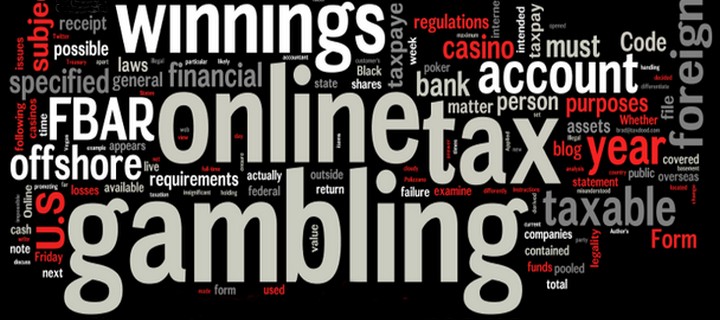Gambling Winnings Taxes

Often casino players consider gambling a chance to have some fun and perhaps earn a couple of bucks while they’re at it. If you play poker online, whether or not you have to pay tax on your winnings or can deduct your losses may depend on how often you play and what percentage of your total income comes from that gambling activity.
In different countries, the law of taxes on gamblers is different. With gambling tax policies, winners can quickly become losers if they do not pay their dues. Before engaging in gambling of casino, you should get familiar with the tax policies and legislation in their country of residence.
Taxes on gamblers in UK
All UK players out there can relax. Thanks to the Gordon Brown’s budget reform back in 2001, all winnings from gambling are tax-free. Whether you play online or rather go to brick-and-mortar casinos, you can keep your winnings and are under no obligation to report them.
Before 2001, in the UK there was a Betting Duty which implied a 6.75% tax on all gambling winnings. It is speculated that the UK government has opted for the removal of gambling winnings taxation in an attempt to keep casino operators in the country and convince them not to leave. This was, the country has disavowed part of its tax income but got to keep the jobs and revenue operators bring in.
“Casino operators and other gambling providers have “point of consumption” tax which stands at 15%.”
To be clear, this doesn’t mean there is no tax involved, it is just that it doesn’t affect casino players. Casino operators and other gambling providers have “point of consumption” tax which stands at 15%. This applies to online casinos as well and is related to the activity of UK casino players. Regardless of where the gambling providers are based, they must pay a “point of consumption tax” for all bets placed by UK residents.
To make things even more interesting, the UK does not differentiate between occasional and professional gamblers. The same rules apply to everyone, even to those whose main source of income is spinning the reels on online slots.
Taxes on gamblers in Canada
The Canada Revenue Agency’s longstanding position on gambling profits is that “an individual may be subject to tax on income derived from gambling itself, if the gambling activities constitute carrying on the business of gambling.”
Gambling profits, including lottery winnings, however, are seen as a “windfall” and not income from a source and thus generally escape taxation. The CRA listed a number of factors that may indicate whether a particular payment constitutes a windfall. These include whether an individual had a specific expectation to receive the particular payment, whether there was an expectation such payments would recur, whether the payment was a “customary source of income for the taxpayer” and whether or not the payment was “earned” as the result of a pursuit of profit.
Taxes on gamblers in USA
Federal and state governments single out casino winnings for unique taxes of their own. Failure to properly report your haul may result in penalties and headaches, so be aware of these rules to stay on the safe side:
How Much You Win Matters
Gamblers are lucky in that casino taxes are not progressive like income taxes are. That is, you will owe the same percentage to the IRS on a $100,000 jackpot as a $10,000 one. Yet, it’s important to know the thresholds that require reporting. Winnings in the following amounts must be reported:
$600 or more at a horse track (if that is 300 times your bet)
$1,200 or more at a slot machine or bingo game
$1,500 or more in keno winnings
$5,000 or more in poker tournament winnings.
All of these require giving the payer your Social Security number, as well as filling out IRS Form W2-G to report the full amount won. In most cases, the casino will take 25 percent off your winnings for the IRS before even paying you.
Not all gambling winnings in the amounts above are subject to IRS Form W2-G. W2-Gs are not required for winnings from table games such as blackjack, craps, baccarat, and roulette, regardless of the amount. Note that this does not mean you are exempt from paying taxes or reporting the winnings. Any and all gambling winnings must be reported to the IRS. It only means that you do not have to fill out Form W2-G for these particular table-based games.
Reporting Smaller Winnings
Even if you do not win as much as the amounts above, you are still legally obligated to report. You also need to report any awards or prize money you won during the year in question. Yes, even if you only win $10, you still technically have to report it (even if the casino didn’t). Gambling income plus your job income (and any other income) equals your total income.
Fortunately, you do not necessarily have to pay taxes on all your winnings. Instead, if you itemize, you can offset taxes owed on your winnings by reporting any losses you incurred as well. You are allowed to claim as much as the total amount won that appears on Form 1040, which would eliminate your taxable gambling income. Just be sure any deductions taken this way (in combination with other itemized deductions) are higher than the standard amount. Otherwise it would make more sense not to itemize, even if it meant foregoing your gambling loss deductions.
State taxes on on gamblers
In addition to federal taxes payable to the IRS, many state governments tax gambling income as well. Each state has their own unique formulas and rules for gambling income. Some levy no gambling taxes at all. Others charge a flat percentage, while still others ramp up the percentage owed depending on how much you won. When in doubt, refer to your own state’s policies online before gambling.

